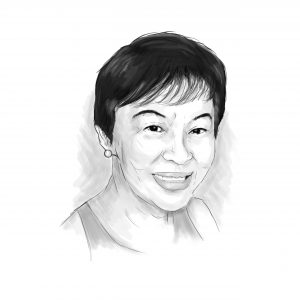MEDIUM RARE

Two of my friends sat in the front row for Rowena Arrieta’s homecoming concert last March 14. Several rows higher up, I thought I had a better view of the pianist’s hands and her right foot on the pedal in spite of her long gown.
Rowena was a young girl when she, along with Cecile Licad and Raul Sunico, became a scholar of the then first lady, Imelda R. Marcos. Those were the days. . .
There was a time when the word “keyboard” could only mean the piano; those were the days when every civilized family, so called, had a piano at home and a budding pianist to play on it. How times have changed, how the keyboard of the computer has taken over. Fortunately, we have pedagogue-pianists like Raul and Mariel Ilusorio, who are bravely carrying on the tradition of teaching youngsters how to play the piano.
At one time not so long ago, Raul had 200 Chinese students dreaming of someday becoming a concert pianist. Mariel, in the meantime, is preparing for a concert in June. She is one classically trained pianist who makes it a point to spread the love for piano music by talking about it, such as before every piece during a live performance, the better to situate the audience in the music – the composition as well as its composer, its history and stories that may have contributed to its popularity and fame. Music, as one music lover described it, shakes off the dust of everyday living.
Thus there was a blast of everyday dust as soon as Rowena hit the opening chords of Liszt’s Totentanz. She was a whirlwind, a typhoon, hitting the keys like a woman possessed, only to retreat now and then to surrender and seemingly fade out, only to bare her fangs again. How I would have loved to hear her “explain” the music – if only we had had the privilege of sitting down with her and talking about her repertoire a day or two before the concert.
How I’ve been missing those face-to-face interviews with visiting musicians! Gone are the days when, “before Covid-19” (as the saying goes now) we could converse with artists like Rowena and see what makes them tick (besides their metronomes).